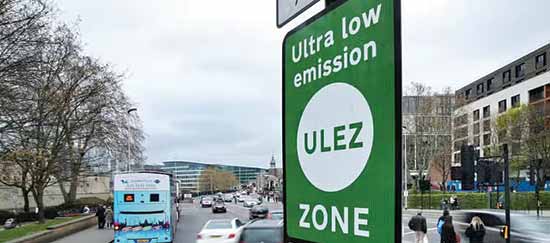Team Blitz India
NEW DELHI: London’s Ultra-Low Emission Zone (ULEZ), introduced in 2019 to tackle toxic air in the city, has helped avert pollution significantly when compared to other areas, according to a recent study.
The policy, when launched, covered a small central zone. It was then expanded to inner boroughs two years later.
These zones produced far less toxic air pollution than the capital’s airports or its river and rail transport combined, said the new study on the effects of the ULEZ.
City Hall said the report, commissioned from Logika Group Air Quality Consultants using Transport for London data, showed that improvements in air quality between 2019 and 2022 from lowering motor vehicle pollution – even before the expansion of ULEZ throughout the capital since August – rivalled the potential savings from entirely cleaning up London’s aviation or industrial and commercial heat and power generation, reported The Guardian newspaper.
The study showed the effectiveness of ULEZ policies in tacking pollution and underlined the reasons for extending the zone to cover the whole of London, as of 29 August, it added.
According to the ULEZ policy, the oldest, most polluting vehicles have to pay a daily charge if driving in the zone. It is £12.50 for cars and more for older coaches and lorries. However, the majority of cars are exempt.
The ‘ULEZ expansion scrappage’ scheme has been in effect since August 2023. A decision has been taken to donate roadworthy cars under the scrappage scheme to Ukraine. Mayor of London Sadiq Khan had pointed out certain legal barriers he faced in sending such vehicles to Ukraine. The office of Secretary of State for Transport Mark Harper is reportedly trying to identify options to resolve this matter.
The Guardian report said that the figures quoted in the report are estimates and do not cover the period since the ULEZ expanded throughout London. The first official data since the latest expansion showed that the number of older, more polluting vehicles in London had dropped by nearly half in a month, with an average 95 per cent of vehicles driven in the city now compliant and not subject to a fee, it added.
















